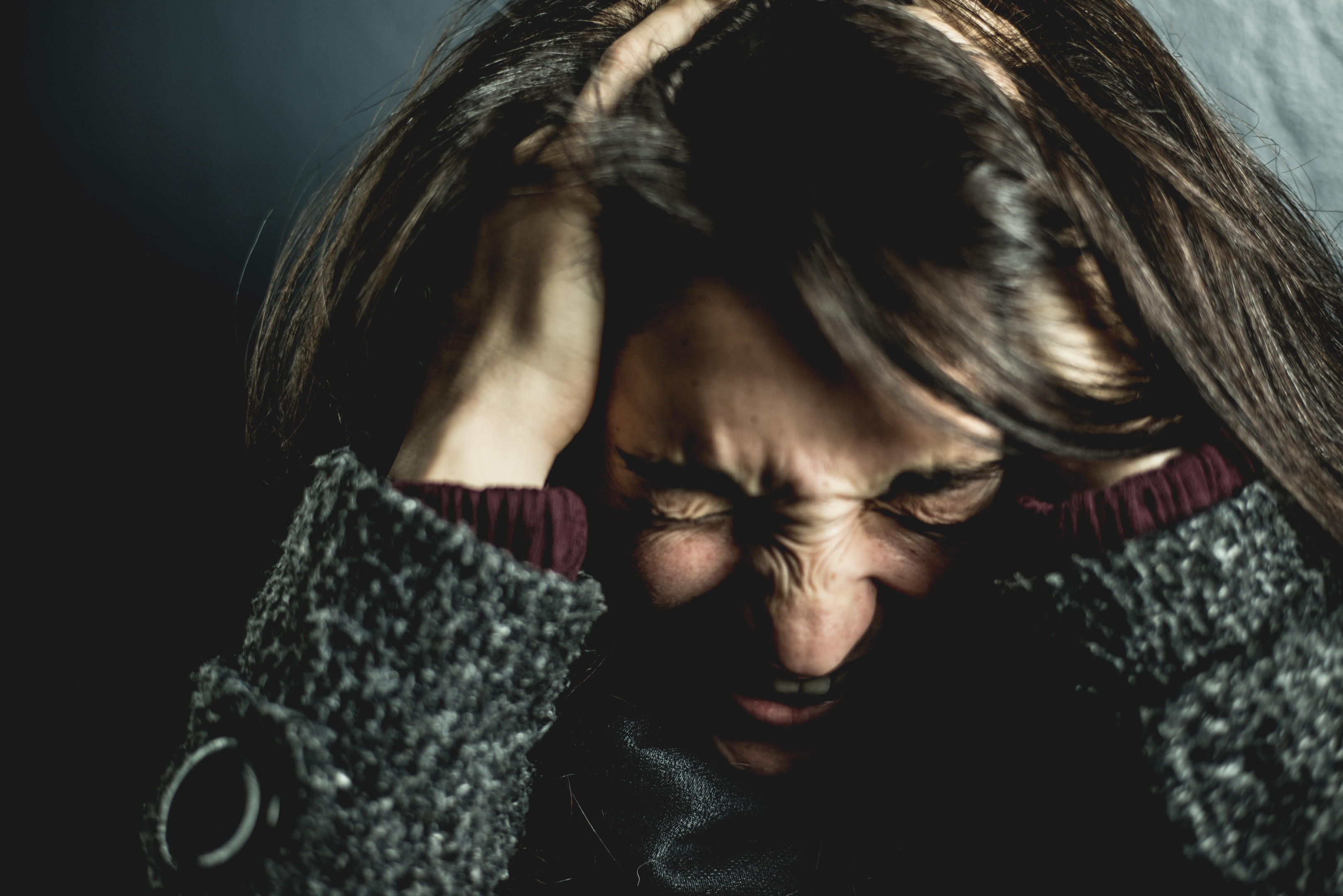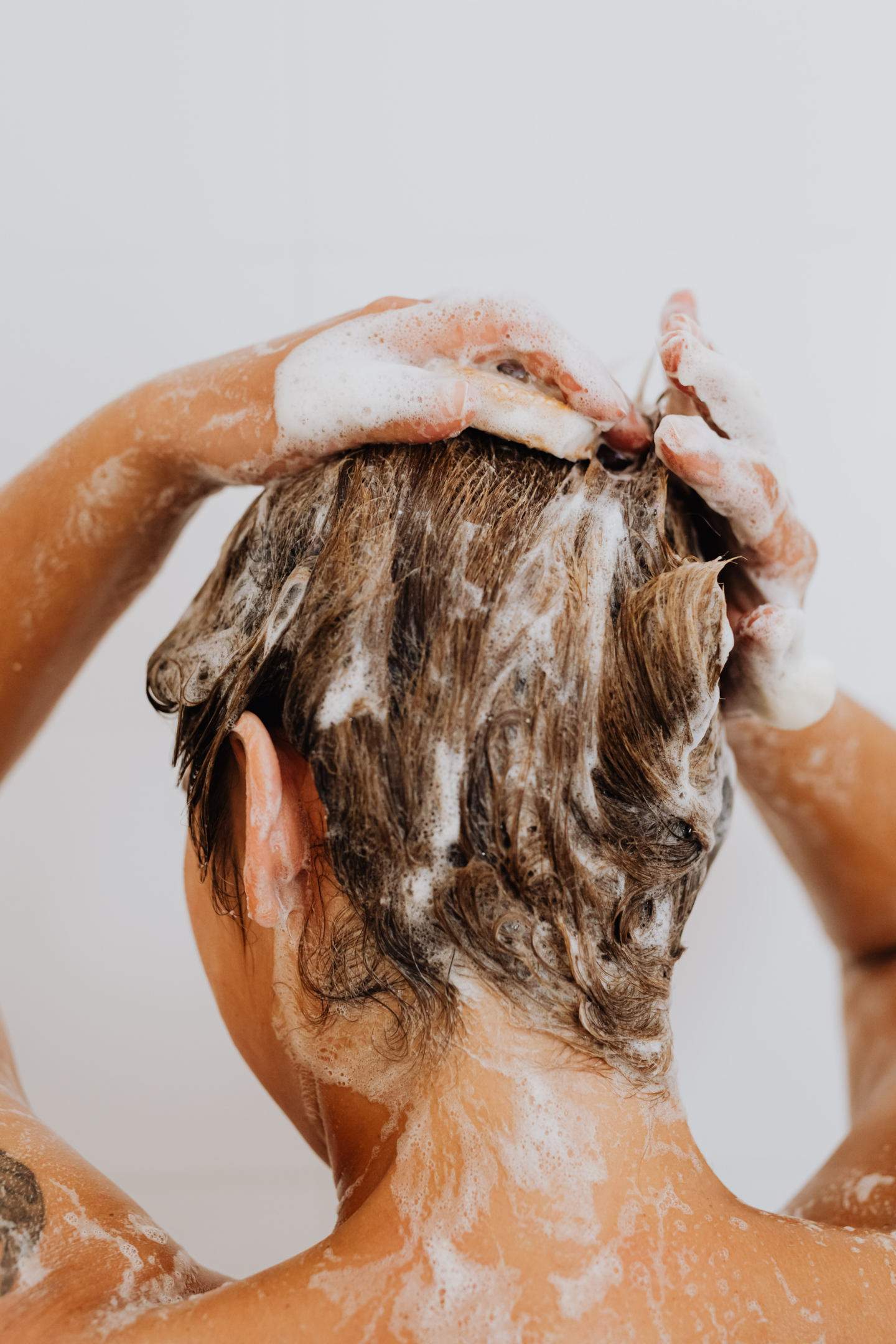
Page Contents
Head & Shoulders is a brand that many people have heard about. It is also a brand that has a bit of controversy around it. One of these things is if it helps prevent or causes hair loss.
The fact is that this shampoo does have an effect on your hair growth. Sometimes this effect is good, and sometimes it is bad, and you should take the time to learn about its effects before you start using it.
What Is Head And Shoulders Shampoo?
You have doubtless heard of the brand, and you probably also know that Head & Shoulders is primarily focused on shampoos that treat dandruff.
Though Head & Shoulders has added shampoos for other hair types, they still hold the claim of being America’s #1 brand for dandruff shampoo.
On their site, they even let you choose what category your dandruff flakes fall in, such as if you have only seasonal or mild flakes or if your dandruff is severe.
They now also have conditioners, hair masks, styling gels, and a few other options you can choose from for your hair.
What Is Dandruff?
The National Library of Medicine lists dandruff as the most commercially exploited skin disease. They go on to say that about half the population either has had or currently has dandruff problems.
In spite of how common it is, most doctors are uncertain whether it is a disease or a disorder. However, one thing that is known about it is that it can be worse in some seasons than others, with winter being one of the worst seasons for it.
Dandruff affects many people and causes white flakes on the scalp. According to Mayo Clinic, some of the first signs are flakiness and an itchy scalp.
With mild forms of dandruff, the flakes are small and are often barely noticeable. As the condition worsens, these flakes can be larger and easily get on everything from your ears to your shoulders and your clothes and pillows.
The mild forms don’t usually come with a lot of itching, but as the flaking gets worse, the itching can be extremely bad, which is why many anti-dandruff products have some sort of soothing ingredient.
The Causes Of Dandruff
Mayo Clinic lists four main causes of dandruff, though there may be more obscure reasons behind this scalp condition. Let’s touch briefly on all of these and the difference between them.
Fungal Infection
More than one type of fungi can lead to something that looks like dandruff. However, the only one that is true ‘dandruff’ is a yeast-like fungus called Malassezia. This is what causes most people’s dandruff.
Like any type of yeast infection, this one is actually found on a lot of people’s scalps without showing any signs of being there until the condition is just right for it.
The right condition is made when your scalp makes a lot of oils. This is what this fungus feeds on. This is why people can be confused by having both extreme oiliness and dry flaking at the same time.
Having an oily scalp on top of the flakes is how this type of dandruff is usually diagnosed. Mayo Clinic says that having a compromised immune system can also help this take root in your scalp cells.
Dryness
Dry skin that isn’t getting the moisture it needs can get flaky on its top layers. Think of this as being similar to what happens when your lips get chapped and dry. This type won’t come with an oily scalp, and all there will be is dryness.
The causes can include:
A windy environment
Too much sunlight on your scalp
Low humidity
Getting too much sun on your scalp will more than likely cause sunburning and then peeling on your head, just like what it does to the rest of your skin.
In all these cases, the dandruff is temporary and will often resolve itself with time as the season changes.
Skin Conditions
While psoriasis is a skin condition that usually doesn’t show on your scalp, this doesn’t mean it never does so. In fact, it isn’t uncommon at all for a bad psoriasis flare-up to affect part of your head, especially around your hairline.
Since this makes your skin dry and flaky, it does the same thing to your head. Sometimes, depending on the severity, it is painful and inflamed, but it may be barely noticeable if it is mild. The same goes for eczema, which is another common thing that can affect your skin.
Contact Dermatitis
Simply put, this is common when people are sensitive to chemicals. It is a type of allergic reaction to something that your skin doesn’t like.
Because of this, contact dermatitis often also has redness and itchiness with it, and you will probably be able to see clear signs of irritation. You may even have a little swelling along with the flaking.
When you have this, it is usually because one of the products you are currently using is causing it. In this case, the hair loss will not stop until you cease using whatever is responsible.
Seborrheic Dermatitis
Though this is not mentioned by the Mayo Clinic site, seborrheic dermatitis is sometimes considered a type of scalp psoriasis.
Seborrheic dermatitis can affect more than just your head, however, as it is also known for causing this flakiness on your eyebrows and even on the chest hair of men. It is almost always associated with pain, swelling, and irritation.

Dandruff Treatments
The Mayo Clinic lists a handful of different ways of treating dandruff. Most of the time, your doctor will have you use some type of anti-dandruff shampoo before trying anything more.
Mayo not only lists some treatment options, but they also list a couple of popular brands for some of them. Head & Shoulders is one of the ones they mention.
Pyrithione zinc shampoos contain the antibacterial and antifungal agent called zinc pyrithione. This is found in some Head & Shoulders shampoos and DermaZinc shampoos.
Selenium sulfide shampoos lists Head & Shoulders Intensive and Selsun Blue as the two options. This type of shampoo is stronger, and Mayo Clinic warns that it may cause hair discoloration.
Related Reading
Ways Dandruff Can Damage Hair
Dandruff can affect your hair growth in many ways and cause a lot of damage to your hair follicles. There are a few main ways it does this, which we are about to go over.
Inflammation
Depending on what is causing your dandruff, your scalp can easily become swollen and inflamed. This affects your circulation, which directly impacts your hair health.
Swelling will constrict the blood vessels going to your hair follicles. As the hair follicle doesn’t get enough of the essential nutrients it needs, it will cause hair fall as the follicle drops the hair shaft to save up what little energy it has.
You will not be able to regrow hair until you restore circulation to it by treating the scalp issues causing the inflammation.
Blockage
Between scratching and the build-up of dead skin cells dandruff causes, it is entirely possible for your hair follicles to become blocked. The hair follicle needs to have its hole to push out the hair shaft.
If the hole it uses gets clogged, the hair roots may struggle to push a hair out. This causes hair loss if it is unsuccessful or thinning hair if the hair grows out smaller in circumference. Thinner hair is easier to damage and looks far less healthy.
Scaring
Itching and scratching your head with your nails can damage your scalp. If you do this for long enough and roughly enough, you will literally cause scarring.
Any type of scarring on your scalp damages your hair follicles and can permanently prevent these from growing hair strands much the same way as male pattern hair loss.
Other Ways
On top of those things, having dandruff is simply not healthy for you. Having an unhealthy scalp may increase the chances that you will get some other type of fungi and have two different types of infection at the same time.
Autoimmune diseases like alopecia areata, which causes hair loss, can be worsened by a poor immune system as well. Also, itching a lot can cause traction alopecia, which is usually caused by tight hairstyles and too much friction on your hair.
Can Head And Shoulders Help With Hair Loss?
As mentioned, dandruff can massively impact your hair growth and can lead to hair loss in a variety of ways. When Head & Shoulders treats dandruff, it can help reverse any hair thinning that your dandruff may have caused.
By treating the underlying hair loss, your hair will often be able to get back to where it was before you got dandruff without any further help being needed. In short, Head & Shoulders shampoo is entirely capable of helping you get hair growth.
Also, some ingredients Head & Shoulders includes as key ingredients are things like vitamins, keratin, and other things that are known to help with hair growth.
Vitamins like Vitamin E, which Head & Shoulders has, have what is sometimes called a barrier function, as it helps a dry scalp by covering damaged hair with a protective layer.
Keratin is another ingredient in many of the Head & Shoulder products. It is helpful for any hair type and helps build your hair strands, which can help you have more hair.
Another ingredient in Head & Shoulders shampoos is dimethicone, which helps give your hair elasticity and keeps the strands smooth to help avoid tangling.
In short, almost all Head & Shoulder shampoos have at least one beneficial ingredient in them to help your hair grow. The exact one varies from one shampoo to the next.
Can Head And Shoulders Cause Hair Loss?
To be so effective at treating dandruff, Head & Shoulders products have a number of strong ingredients that are formulated to kill off fungi.
These ingredients are not always good for your hair follicles, and a few of them may cause hair loss. Though the formula for each Head & Shoulders shampoo is slightly different, there are a few things that are in almost all of them.
Zinc Pyrithione
Zinc pyrithione, sometimes written as pyrithione zinc, is one of the main active ingredients in many Head & Shoulders shampoos. While it isn’t entirely clear how this main ingredient works, one theory is that zinc pyrithione can starve the fungal condition of the iron it needs.
If this is true, pyrithione zinc may also start starving your hair of iron. It also helps increase zinc levels, hence the name zinc pyrithione, and may increase your copper levels.
How these things affect your hair growth is probably not good, especially since zinc has a tendency to bind to certain other cells your hair may need. The National Library of Medicine has a paper on how zinc pyrithione works.
Selenium Sulfide
Selenium sulfide is one of the two common ingredients Head & Shoulders products use to combat dandruff. Even in their clinical strength formula, there is only 1% of this ingredient.
If you want a solution that is stronger than this, you’ll need to ask your healthcare provider about prescription products. Even then, it is only in amounts up to 2.5% because higher amounts have too many side effects.
According to MedlinePlus, the main side effects are:
oiliness or dryness
hair loss
hair discoloration
It is also possible that you may be allergic to it or have a severe reaction, and you are given careful instructions for disposing of it and to keep it out of reach of children.
Sulfates
The reason many products proudly put on their label that they are sulfate-free is that it is fairly well-known that sulfates are very harsh on your hair and can cause scalp dryness.
Head & Shoulders, as well as many other brands, continue to use these ingredients anyway because they are good surfactants. This means that it makes a nice lather and does a good job of stripping your hair of any excess oils.
It is also useful for cleaning away all the dead skin cells dandruff causes. However, it does so well at stripping your hair that it can negatively impact your hair strength and lead to hair breakage as it weakens it.
The most common ingredient in this category is sodium lauryl sulfate, but sodium lauryl sulfate is by far not the only ingredient in the family of sulfates. These are also often used in household cleaning products.
Contact Dermatitis
There are many ingredients in Head & Shoulders that can cause a reaction. Only one active ingredient that irritates you is needed to cause this type of reaction. Even inactive ingredients can sometimes cause contact dermatitis.
Other Things It Can Cause
There are many other side effects that Head & Shoulders can cause besides hair loss. Some of these can indirectly affect your hair or cause damaged hair, and none of them are good.
For example, Methylisothiazolinone is a common ingredient that may cause damage to the nervous system, according to one study. Though this won’t cause hair loss, this active ingredient is something you may want to avoid.
If your body is under stress because of these other side effects, it can cause telogen effluvium, which is a type of temporary hair loss.
What To Do About Hair Loss Caused By Head And Shoulders
Firstly, the moment you start noticing hair loss because of your Head & Shoulders product, you should stop using it. Hair loss caused by telogen effluvium or contact dermatitis will usually resolve itself in a few weeks to a few months.
Sometimes, however, simply stopping your use of Head & Shoulders shampoo is not going to be enough to stop your hair loss. In this situation, you may need to go to your doctor to talk to them about hair loss treatments.
Though Minoxidil foam is generally used for male and female pattern hair loss, this androgenetic alopecia treatment can help your hair, thanks to its active ingredient.
There are many shampoos that have a formula to help with hair loss. These range from natural to ones that simply have good active ingredients. There are also hair masks, vitamins, serums, and prescription medication options your healthcare provider can prescribe.
Your doctor may recommend some sort of laser therapy, micro-needling, or some other hair loss treatment depending on how bad your hair loss is from using Head & Shoulders.
Final Thoughts

All in all, Head & Shoulders can help treat hair loss caused by dandruff while also causing hair loss if you have a reaction to one of its ingredients.
If you have dandruff, Head & Shoulders is the brand with the highest chances of working, though, so you may feel it is worth the slight risk of hair loss.
Other hair products may not be as likely to work and can be more expensive. At least with Head & Shoulders, you know more of what to expect.
Did Head & Shoulders cause hair loss for you? If so, how long was it before you started noticing hair loss because of it? Or did Head & Shoulders help with your hair density and growth? I’d love to know about your experience with their hair care products!






